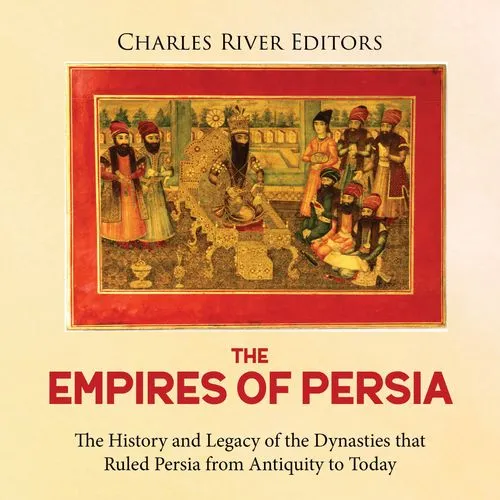
Free Download The Empires of Persia: The History and Legacy of the Dynasties that Ruled Persia from Antiquity to Today (Audiobook)
English | ISBN: 9798882306648 | 2024 | 11 hours and 9 minutes | M4B@64 kbps | 318 MB
Author: Charles River Editors
Narrator: Victoria Woodson
Lying in the middle of a plain in modern day Iran is a forgotten ancient city: Persepolis. Built two and a half thousand years ago, it was known in its day as the richest city under the sun. Persepolis was the capital of Achaemenid Persian Empire, the largest empire the world had ever seen, but after its destruction, it was largely forgotten for nearly 2,000 years, and the lives and achievements of those who built it were almost entirely erased from history. Alexander the Great’s troops razed the city to the ground in a drunken riot to celebrate the conquest of the capital, after which time and sand buried it for centuries. The Parthian people created an empire that lasted almost 500 years, from the mid-3rd century BCE until 224 CE, and it stretched from the Euphrates River in the west to Central Asia and the borders of Bactria in the east. In fact, the expansive empire challenged the Romans on numerous occasions for supremacy in the Near East.
During the first half of the 1st millennium CE, an empire arose in Persia that extended its power and influence to Mesopotamia in the east, Arabia in the south, the Caucasus Mountains in the north, and as far east as India. This empire, known alternatively as the Sasanian Empire or Sassanid Empire, was the last of three great dynasties in Persia-the Achaemenid and the Parthian being the first two dynasties-before the rise of Islam. Amid the upheaval in the Islamic world following Muhammad’s death, the Umayyad Caliphate lasted for less than a century, but in that time it managed to become one of the most influential of the major caliphates established following him. The Umayyads would be replaced by the far more intelligent and crafty Abbasids, who managed to wield powerful tools like propaganda to undermine their opponents, but eventually, the Ottomans would consolidate control of the area for nearly 500 years.
